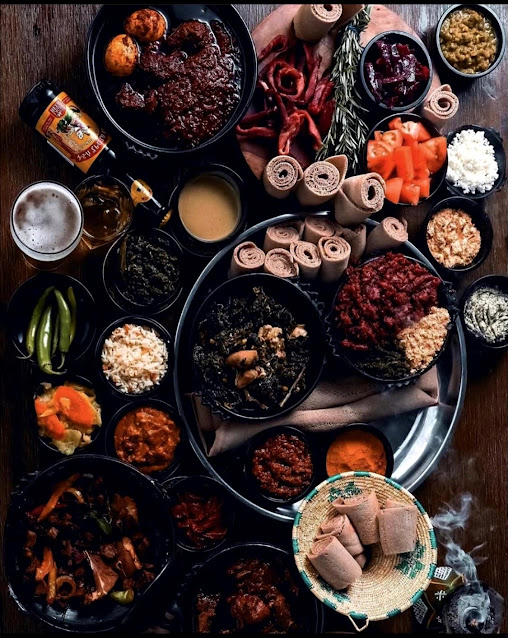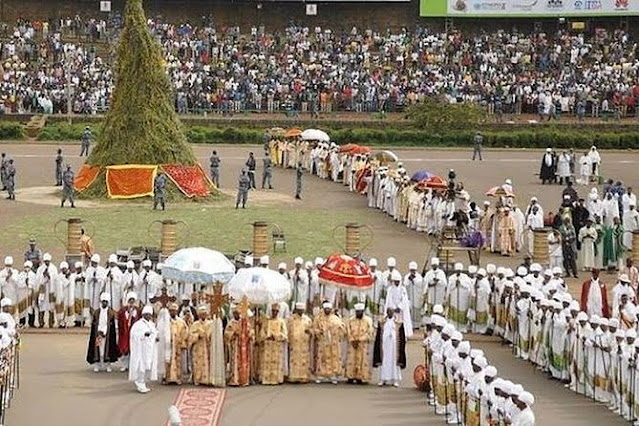Holiday Celebration 
By: Rediet Shiferahu
In Ethiopia, religion plays an important part in life. The Orthodox Tewahedo Church ceremonies are unique and impressive, particularly the festivals of Timket and Meskel, which provide colorful ceremonies and celebrations. Celebrations concentrate on cultural or ethnic subjects. It includes sharing stories and experiences with the community.
The Amharic word for Easter is Fasika, which refers to the death and resurrection of Jesus Christ. In the Ethiopian Orthodox Church, this festival is the most important festival of the year. A sheep is killed on Easter Sunday to begin the feast, and all religions have special services and masses that bring together their communities. The sheep symbolizes the Old Testament tale in which the trust of Abraham when God asks him to sacrifice his only son. Families sit around tables on Sundays to enjoy special dishes prepared for the feast while relatives and neighbors visit each other, exchange special seasonal greetings, and dine together. On such occasions, the coffee ceremony is performed differently and colorfully.
Timkat 
Timkat is commonly celebrated throughout Ethiopia, but in the historic city of Gonder, the biggest and most impressive Timkat celebrations take place. Gonder is an ancient city, also called the Camelot of Africa, studded with royal palaces and castles bathed in blood and painted in gold.
Timkat commemorates the baptism of Christ and is held over three days. The most significant day is January 19th, and this is when the blessing of water and the reaffirmation of the vows of baptism occurs.
The Tabot symbolizes the ten commandments written and addressed by God to Moses. During the night, the priests and some other participants keep watch over the Tabots.
The pilgrims enjoy a special Timkat feast with their families after the reenactment of the baptism of Jesus. Injera, an Ethiopian flatbread filled with various meat and vegetables, and eaten with their hands, is the traditional food eaten at Timkat. Injera is enjoyed at many of the annual festivals in Ethiopia, such as Meskel, held each September. One of the nation's most well-known dishes, Doro Wat, an Ethiopian spiced chicken dish, is also eaten during Timkat.
Meskel is the discovery of the Real Cross on which Jesus was crucified. The celebration of the Meskel festival starts with the burning of a huge bonfire called Demera by a large Christian procession at Meskel Square, named in honor of the festival. This procession of Demera sometimes starts on the eve of the gathering or often on the morning of the celebration.
The flowers of Meskel are yellow daisies that bloom coincidentally at the time of the festival. Usually, these daisies are connected to the top of branches and packed together into the demera, which is then set ablaze on the eve of the festival by citizens' procession.
The crowd surrounds the bonfire singing unique Meskel songs before allowing it to burn into ash entirely.
These smaller-scale festivities, a miniature version of the one lit in the capital, are conducted by lighting smaller fires on the streets outside their homes. They come together later to enjoy honey-based wine.











Comments
Post a Comment